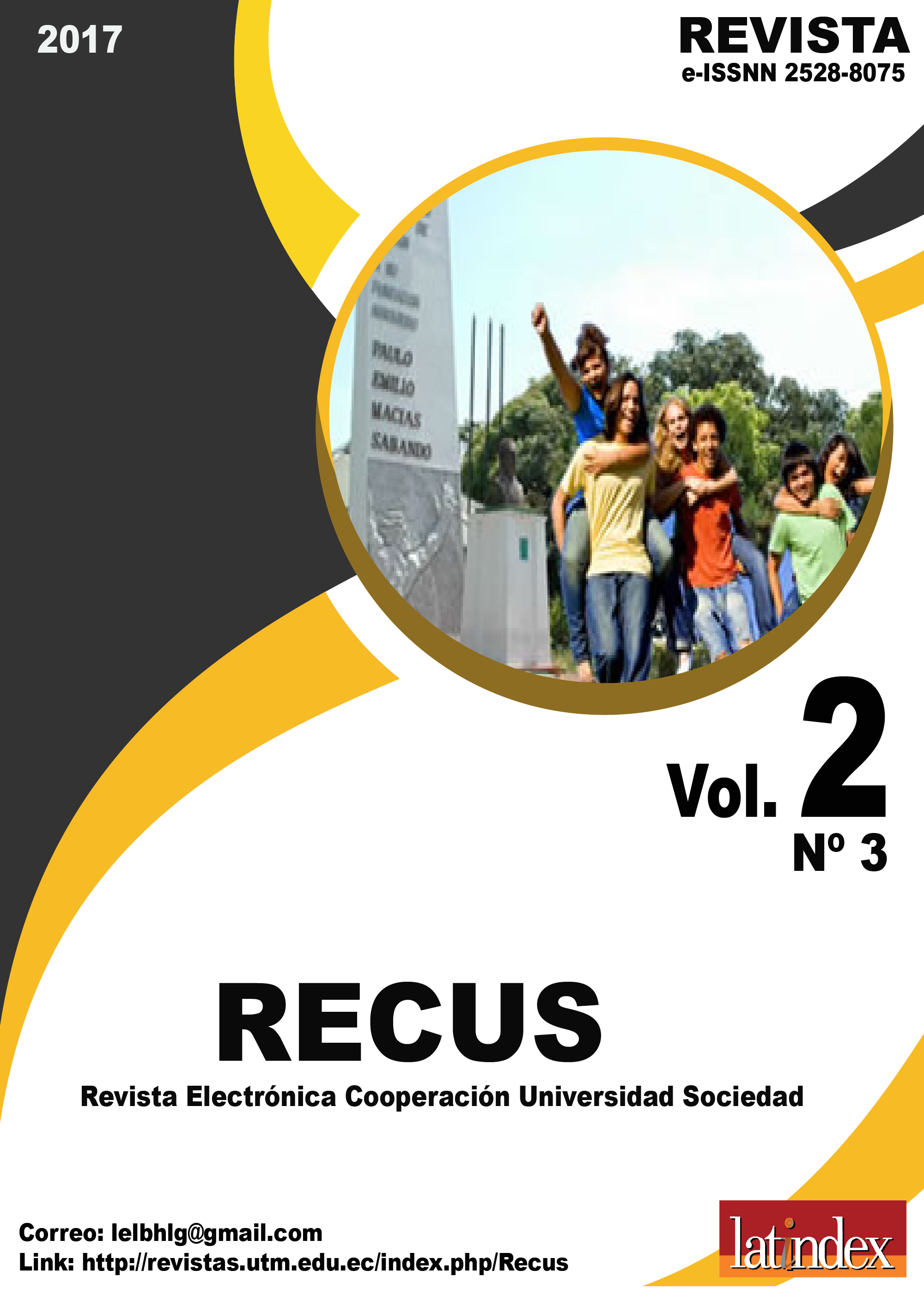Validation of a measuring instrument for the diagnosis of the undergraduate training process
DOI:
https://doi.org/10.33936/recus.v2i3.1094Keywords:
validity, reliability, measuring instrumentAbstract
The present article reveals the procedure carried out by the authors in the design and elaboration of the survey questionnaire applied to the students as measuring instrument for the diagnosis of the undergraduate training process, all of which arises from the research project "Pedagogical model according to the demands of the 21st century for the training of professionals at the University of Artemisa”. The procedures granting validity and reliability to the measurement instrument were also considered and presented as well as the statistical analysis evaluating the internal consistency of the questionnaire as result of the application of the Multidimensional Correlation Coefficient rpj, a novel and recognized logical procedure accepted by the Classical Theory of Tests. The piloting was done to an intentional sample of 13 students of the Foreign Languages majoring at the School of Sciences of the Education for constituting a homogenous group with an appropriate motivation by their studies. When applying the coefficient to the results that were registered in each one of the questions of the instrument, oscillating values between 0.58 and 0.64 were obtained, which implies that the instrument has consistency and, therefore, it is reliable.
Downloads
References
Hidalgo, L. (2005). Validez y confiabilidad en la investigación cualitativa. [Documento PDF en línea]. Venezuela: UCV. Disponible: www.ucv.ve/uploads/media/Hidalgo2005.pdf
[Consultado: 2017, agosto 28].
Hurtado, J. (2012). Metodología de la investigación: guía para una comprensión holística de la ciencia (4a. ed.). Bogotá-Caracas: Ciea-Sypal y Quirón.
Pérez, O. (2011). Los diseños estadísticos en las investigaciones educativas. Curso 75 de Postgrado Pre evento del Congreso Internacional Ped’2011. Sello Editor Educación Cubana. ISBN 978-959-18-0674-1.
_______. (2013). Una alternativa para los diseños experimentales. Curso 32 de Postgrado Pre evento del Congreso Internacional Pedagogía 2013. Sello Editor Educación Cubana. ISBN 978-959-18- 0870.7
_______. (2015). Cohaerentîa: software de procesamiento para determinar el grado de coherencia en sistemas y procesos complejos y dinámicos. Memorias Congreso Internacional Pedagogía 2015. ISBN: 978-959-18-1099-1.
Prieto, Gerardo; Delgado, Ana R. (2010). Confiabilidad y validez. Papeles del psicólogo. España: Consejo General de Colegios Oficiales de Psicólogos) ISSN 0214-7823.
Rodríguez, A. y otros (2016). El Modelo Pedagógico para la Formación de Pregrado en la Universidad de Artemisa: Definición, Componentes y Fundamentos Teóricos. Primer Resultado de Proyecto de investigación. Centro de Estudio de Educación y Desarrollo. Universidad de Artemisa, Cuba. pp 39.
______________. (2017). La variable y su operacionalización en la investigación Segundo Resultado de Proyecto de investigación. Centro de Estudio de Educación y Desarrollo. Universidad de Artemisa, Cuba. pp 4.
Downloads
Published
Issue
Section
License
Copyright (c) 2017 Zeidy Sandra López Collazo, Olga María González Lang, Yaramí Álvarez Blanco

This work is licensed under a Creative Commons Attribution-NonCommercial-ShareAlike 4.0 International License.


















